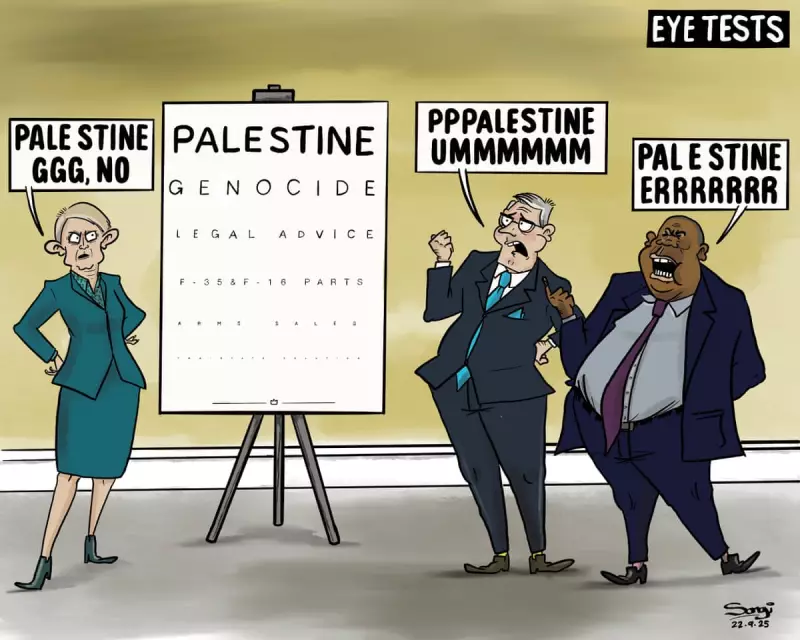
In a decision that reshapes its role in the Middle East, the United Kingdom has formally recognised Palestine as an independent and sovereign state. The move, announced by the government, marks a profound shift in British foreign policy and aligns the UK with a growing number of European nations taking a firmer stance.
The recognition is laden with powerful symbolism, signalling a commitment to a two-state solution as the only viable path to lasting peace. However, it is also widely interpreted as a significant diplomatic reprimand to the current Israeli government, urging a return to negotiated talks.
Political cartoonist Pete Songi, in a sharp and evocative piece for The Guardian, captures the complex essence of this moment. His cartoon distils the monumental policy change into a single, potent image, commenting on the weight of the decision and its reception on the world stage.
This unilateral move by Westminster is set to have considerable ramifications:
- International Relations: It strengthens Palestine's standing in international forums and may encourage other hesitant nations to follow suit.
- Domestic Reaction: The announcement has been met with both strong support and criticism within the UK, reflecting the deeply divided public and political opinion on the issue.
- Future Negotiations: By concretely recognising Palestinian statehood, the UK aims to reset the balance in any future peace negotiations, though the practical on-the-ground impact remains to be seen.
This step goes beyond mere rhetoric; it is a substantive policy change that will redefine the UK's diplomatic engagements in the region for years to come.






